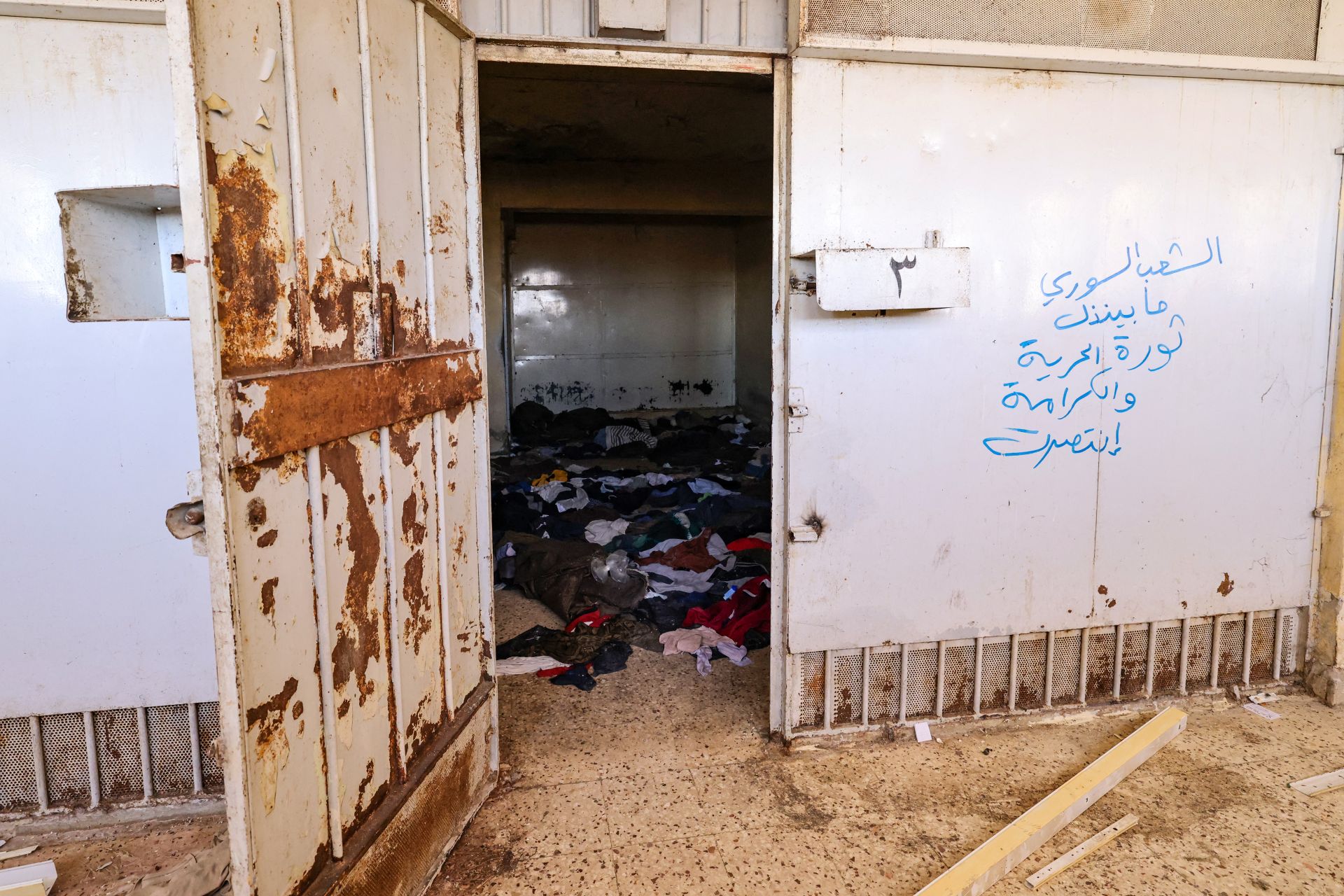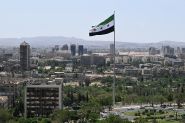- Home
- Middle East
- Syria Commission Says More Than 300,000 May Have Gone Missing Since 1970s

Clothes are scattered on the floor of an empty cell inside the Saydnaya prison north of Damascus on January 3, 2025. ©Anwar Amro / AFP
The head of Syria's commission for missing persons said Monday the number of people who went missing during decades of Assad family rule and the civil war may have exceeded 300,000.
Mohammed Reda Jalkhi, head of the commission created in May, said the body's mandate ranged from 1970, the year Hafez al-Assad took power, to the present day and had no timeframe for completing its work.
"Our estimates of the number of missing range between 120,000 and 300,000 people, and it could be more," he told state news agency SANA.
Tens of thousands of people were detained or disappeared during the Syrian civil war alone, which erupted in 2011 after a brutal crackdown on anti-government protests by former president Bashar al-Assad, who was ousted in December.
During the war, all sides were accused of atrocities, including the Islamic State jihadist group, which seized large swathes of Syria and neighboring Iraq, enforcing a strict interpretation of Islamic law and committing widespread abuses, including executions.
Bashar al-Assad ruled with an iron fist, like his predecessor, his father Hafez, who took power in a bloodless military coup.
The family's rule was among the most brutal in the region and its prison system, including feared sites such as Saydnaya, was notorious for disappearing people without a trace.
"We have a map that includes more than 63 documented mass graves in Syria," he said, without providing details on where they were located, who dug them or who was thought to be buried there.
He said work was underway to establish a data bank for missing persons.
Syria's new authorities have pledged justice for victims of atrocities committed under Assad's rule.
In January, the president of the International Committee for the Red Cross said determining the fate of those who went missing during the war would be a massive task likely to take years.
Jalkhi said his commission's work was "essential to the process of transitional justice and civil peace," calling the issue of missing persons "one of the most complicated and painful in Syria."
AFP
Read more



Comments